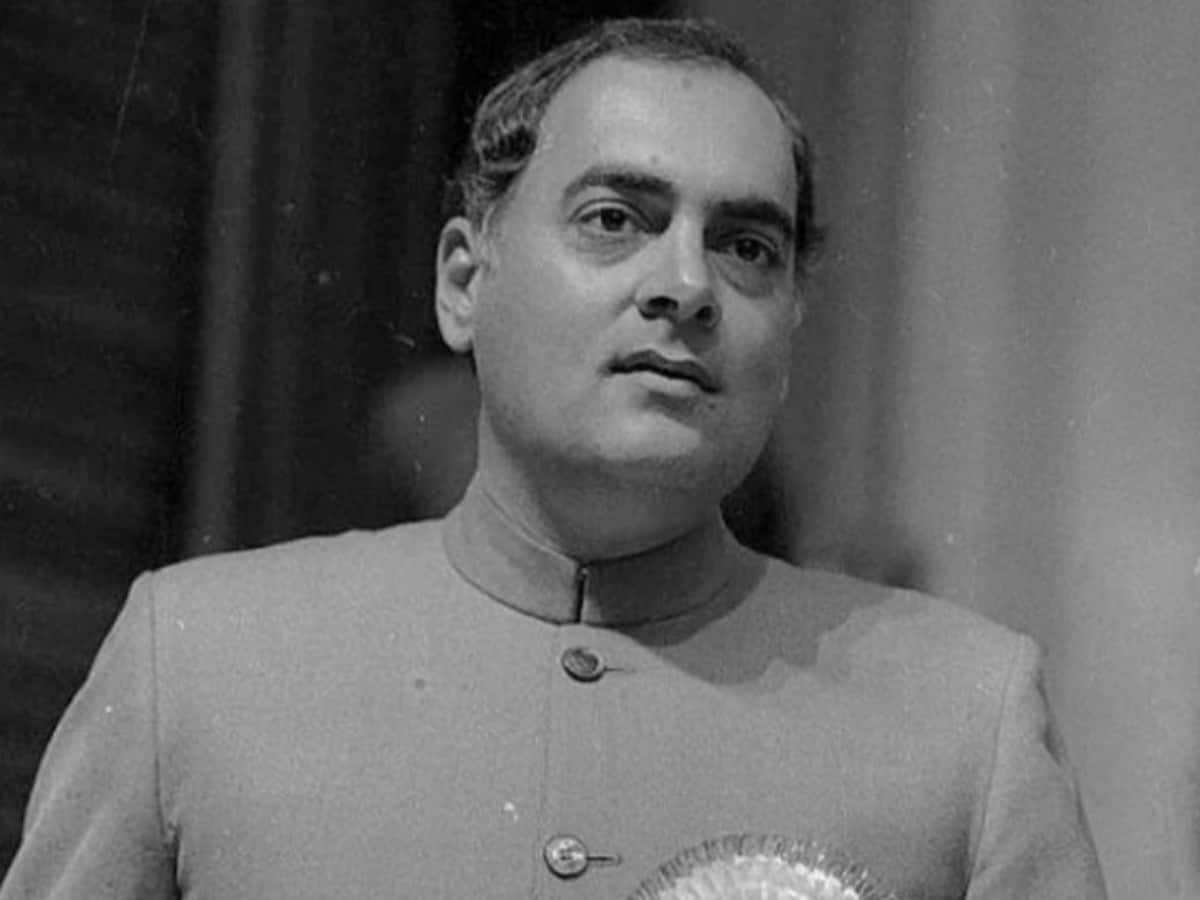
It is tragic to see how a promising career of Rajiv Gandhi was sought to be lampooned, tarnished and denigrated by the Opposition and the Media. This was clearly a strategy adopted when the Opposition failed to defeat him in a straight contest in elections.
Even in 1989, against all odds, Rajiv Gandhi won 197 seats, although he failed to cobble up a majority. The RSS-Left joined hands to prop up V P Singh Government at the Centre and Mulayam Singh Yadav Government was formed with BJP support in Uttar Pradesh, given the Samajwadi Party supremo proximity to Bhaurao Deoras, brother of the then RSS Chief Madhukar Dattatreya Deoras. It was because of their RSS connections that V P Singh and Mulayam Singh Yadav were propped up by the BJP.
Rajiv Gandhi, whose birth anniversary falls on August 20, rose to be the Prime Minister in the most tragic circumstances, following the horrendous assassination of his mother Indira Gandhi on October 31, 1984.
In a short span of 5 years, Rajiv Gandhi brought about several revolutions. These included Operation Blackboard, Telecom Revolution, Science & Technology Revolution and Computers Revolution, which laid the foundation for the leap in Digitalization.
Rajiv Gandhi mooted conferring Constitutional status on the Panchayat Raj and Nagar Palikas, through Constitution 63rd and 64th Amendments. But, as Leader of Opposition in Rajya Sabha, Atal Behari Vajpayee got it defeated in the Upper House, forcing Rajiv Gandhi to dissolve the Lok Sabha and go for polls. Later, during the tenure of Prime Minister P V Narasimha Rao, from 1991 to 1996, the same was passed as Constitution 73rd and 74th Amendments.
Besides, Rajiv also laid the foundation for the far-reaching Economic Reforms. These were ushered in shortly after his tragic assassination on May 21, 1991, at Sriperumbudur in Tamil Nadu, in the midst of electioneering. In fact, his end came, when he was all set to stage a dramatic return to power at the Centre.
Rajiv Gandhi has been viciously attacked by the Opposition and the media, at least on two issues. On both counts, it was done without any application of mind. One is the Bofors issue. Second, is the Muslim Women (Protection of Rights on Divorce) Act, 1986, enacted by the Rajiv Gandhi Government in the wake of the Supreme Court judgment in Shah Bano case, granting her alimony after her divorce.
On both counts, the Opposition attacks proved to be baseless, unsubstantiated and plain malicious.
Bofors
After 15 years of prolonged and vexatious litigation from 1989 to 2004, came the verdict of Justice J D Kapoor of Delhi High Court on February 5, 2004.
The Delhi High Court quashed the charges of bribery against Rajiv Gandhi and others. It conclusively established that no case of corruption was made out by the CBI against Rajiv Gandhi and others in the Howitzer guns purchase.
The Vajpayee Government did not dare to challenge the verdict in the Supreme Court, within the stipulated period of 90 days for filing an appeal in the Supreme Court.
There could not have been a worser indictment for the Vajpayee Government. Rs 250 crore was spent on what was described as tracing the trail of Rs 64 crore payoffs. In 1990, BJP leader Arun Jaitley was appointed by V P Singh Government as Additional Solicitor-General Incharge of Bofors, specifically charged with the responsibility of building up a case against Rajiv Gandhi. Best of legal brains could not do anything against Rajiv Gandhi.
In an utterly graceless, undignified and in a most unbecoming manner, the Vajpayee Government named Rajiv Gandhi in the Chargesheet in 1999, 8 years after his tragic assassination on May 21, 1991.
The Vajpayee Government placed Rajiv Gandhi among persons listed in Column 2 in the Chargesheet. This implies that no criminal offence could be proceeded with against him, because he is dead.
Vajpayee, according to former diplomats, got the portrait of Pandit Jawaharlal Nehru removed from the Indian Missions abroad, during his tenure as the External Affairs Minister in the Janata Party Government from 1977 to 1979. Perhaps nothing better could have been expected from Vajpayee, as far as showing grace is concerned in public life.
Muslim Personal Law
Second issue on which the brigade runs a mindless and senseless campaign is on Personal Law. This debate is indeed laced with an undertone of anti-Muslim sentiment.
In fact, every religion has Personal Law. There is Hindu Personal Law, Christian Personal Law, Parsee Personal Law and Muslim Personal Law. How come, only Muslim Personal Law gets singled out for attacks?
Article 25 and Article 26 of the Indian Constitution provide for religious freedom, which covers Muslim Personal Law. But Section 123 of the CrPC was invoked by the Apex Court, which puts a legal obligation on a man to provide for his wife during marriage and after divorce, too. This is in sharp contrast to the Constitutional guarantees under Article 25 and Article 26 of the Constitution.
Even during the time of Prime Minister Indira Gandhi, there was a clear statement on floor of Parliament that there will be no change in the Personal Law of any section, without consulting them and without their explicit consent. An assurance given on floor of Parliament is sacrosanct in a democracy.
Rajiv Gandhi took the same position when judicial pronouncements sought to overturn this hallowed policy position on protecting Personal Law of any religion.
The decision to bring about The Muslim Women (Protection of Rights on Divorce) Act, 1986, was of Rajiv Gandhi, alone. Rajiv Gandhi decision was not influenced by either Union Ministers Zia-ur-Rahman Ansari and Arif Mohammed Khan, who had gone to the extent of resigning as the Union Minister. But, at the same time, he allowed both Arif Mohammed Khan and Zia-ur-Rahman Ansari the democratic space to argue out their respective viewpoints.
For his part, Rajiv Gandhi kept his own counsel on the need to uphold the Constitutional position on the issue of safeguarding the Muslim Personal Law.
Social Reform Movement among Hindus was launched by Raja Ram Mohan Roy, who was instrumental in securing the Abolition on December 4, 1829, of the pernicious practice of Sati, or burning alive of the wife on the pyre of her dead husband.
Though Sati was such an abhorred and pernicious practice, the Sati Abolition Law was passed by British Governor-General Lord William Bentick, only after obtaining support of the leaders of the Indian Social Reform Movement led by Raja Ram Mohan Roy.
Changes in the Personal Law can be brought about only through consultations and consent of the concerned religious community. In fact, Personal Law deals with very personal issues like birth, death, marriage and inheritance. Is there any need to dabble in such issues, which hardly concerns the others?
Shah Bano Verdict
The Supreme Court judgment in the Shah Bano case was delivered by the five-judge Constitution Bench, comprising of Chief Justice Y V Chandrachud, Justice Ranganath Misra, Justice D A Desai, Justice O Chinnappa Reddy and Justice E S Venkataramiah, on April 23, 1985.
Shah Bano demanded maintenance for her and her five children. In Islam, marriage is contractual and it is not sacrosanct. In Islam, just as in Hindus, marriage and its annulment is governed by the Personal Law, which has Constitutional guarantee under Article 25 and Article 26 of the Constitution. Under Sharia, or the Muslim Personal Law, maintenance is provided during marriage and later only until the Iddat period, not beyond.
Can Section 123 of the CrPC, which puts a legal obligation on a man to provide for his wife during marriage and after divorce, too, be invoked to negate and nullify the Constitutional mandate of Article 25 and Article 26, is at the heart of the issue.
After a year of debate, Rajiv Gandhi brought The Muslim Women (Protection of Rights on Divorce) Act, 1986, to overturn the judgment of the Supreme Court. Such laws were brought after negative verdicts by the Apex Court in cases like Banks Nationalization, Abolition of Princely Privileges and Privy Purses and Land Reforms and there was nothing unusual about The Muslim Women (Protection of Rights on Divorce) Act, 1986, as it was sought to be made out by the Media and the Opposition.
To call upholding of the Constitution by the name of Appeasement is the worst form of perversity. Any Prime Minister worth his salt is duty-bound to uphold the Constitutional position.
Dominant view among all right-thinking people and Muslims, including Ulema, was that the Apex Court judgment was in conflict with the Sharia and the Muslim Personal Law, besides the Constitutional guarantees of Article 25 and Article 26 of the Constitution.
It was against this backdrop that Rajiv Gandhi decided to decisively step in, to set right the legal and the Constitutional position of the Muslim Personal Law.
A Prime Minister, who swears to uphold and protect the Constitution, cannot but do everything in his power to ensure that the Constitutional position is not compromised. This is what Rajiv Gandhi did, by bringing in The Muslim Women (Protection of Rights on Divorce) Act, 1986.
Venkat Parsa is a senior journalist and writer based in New Delhi.
Views expressed are personal

